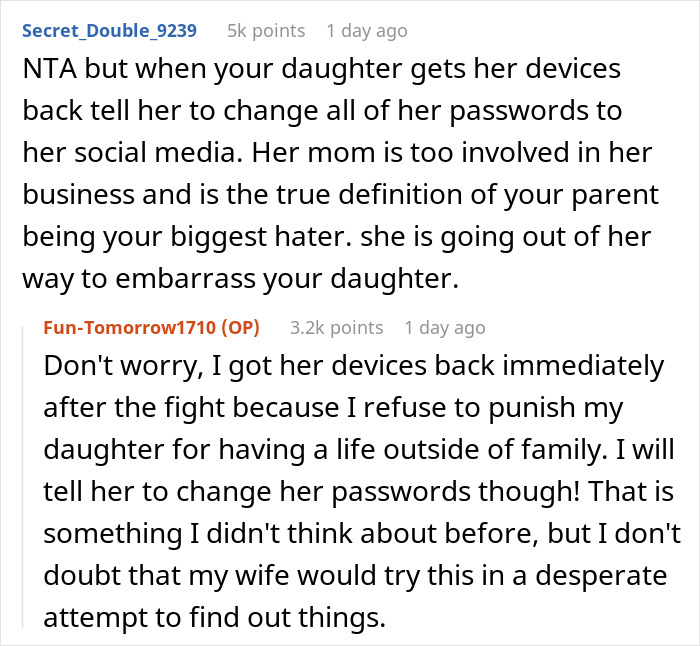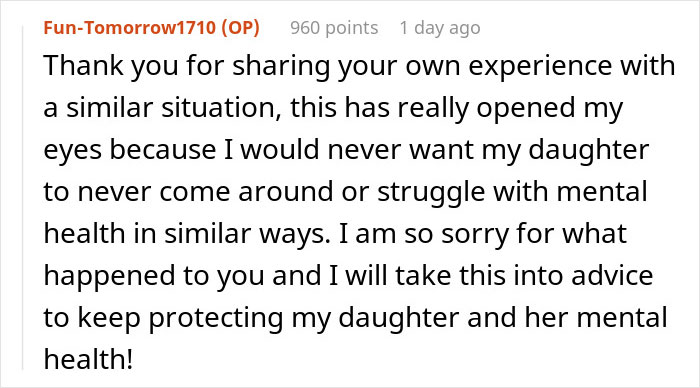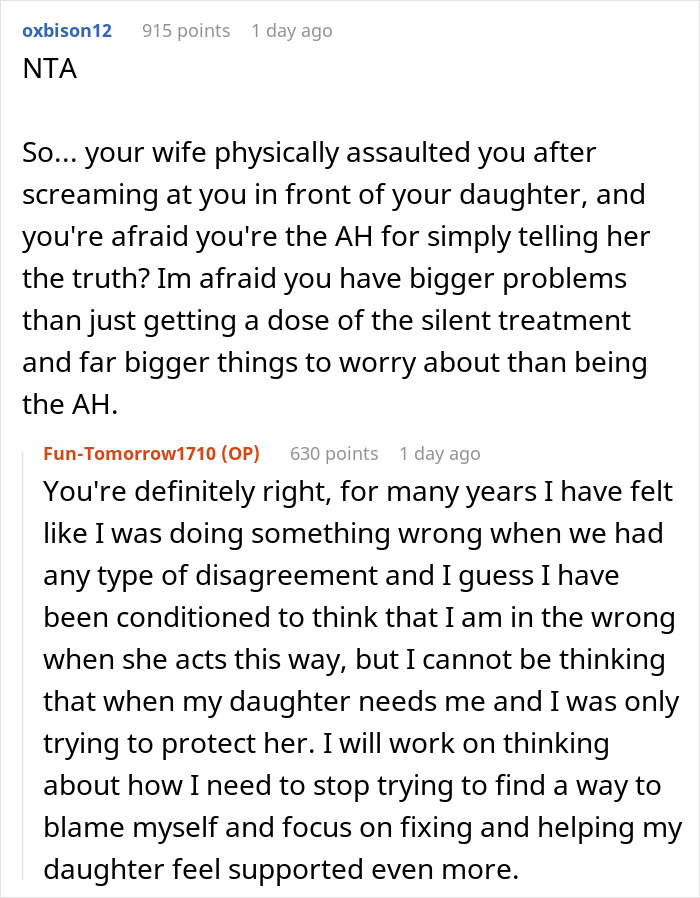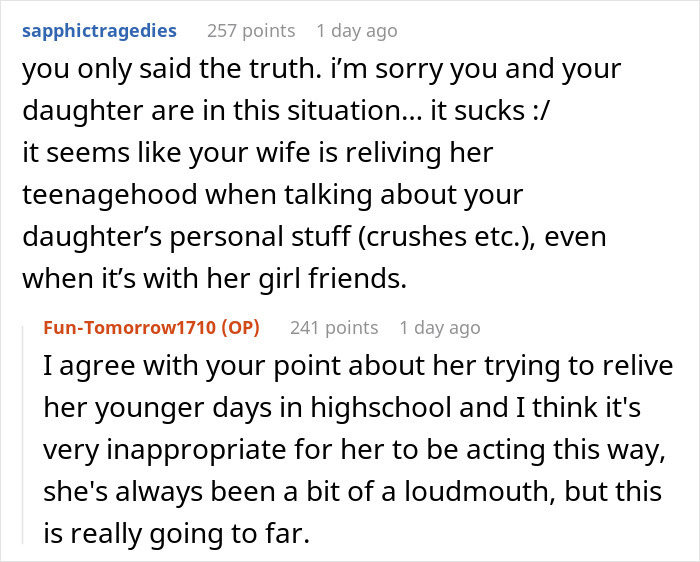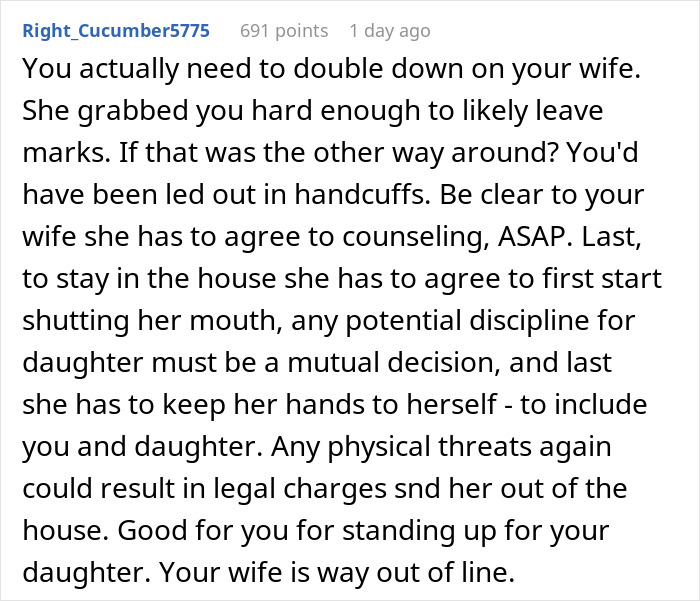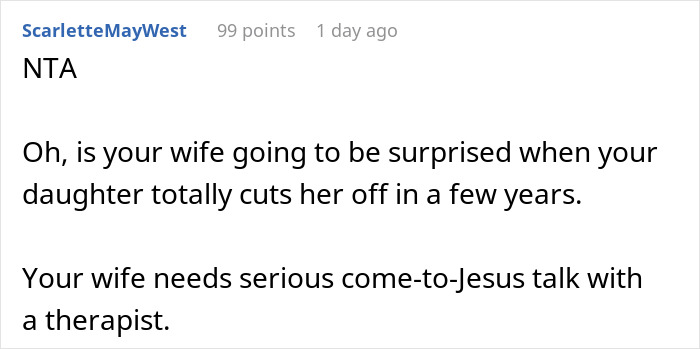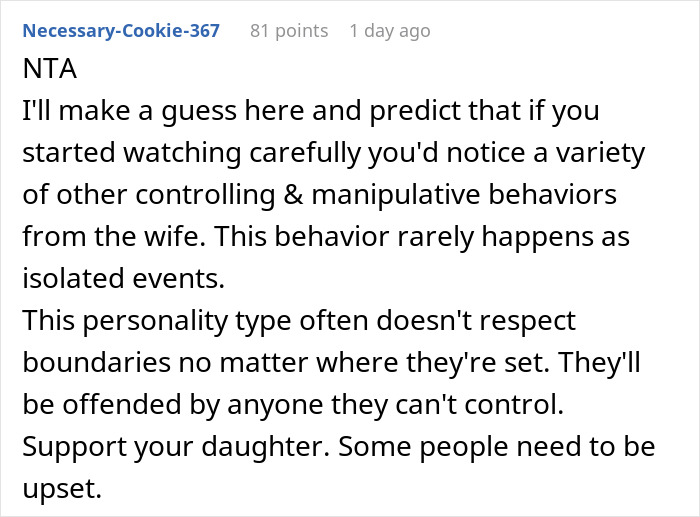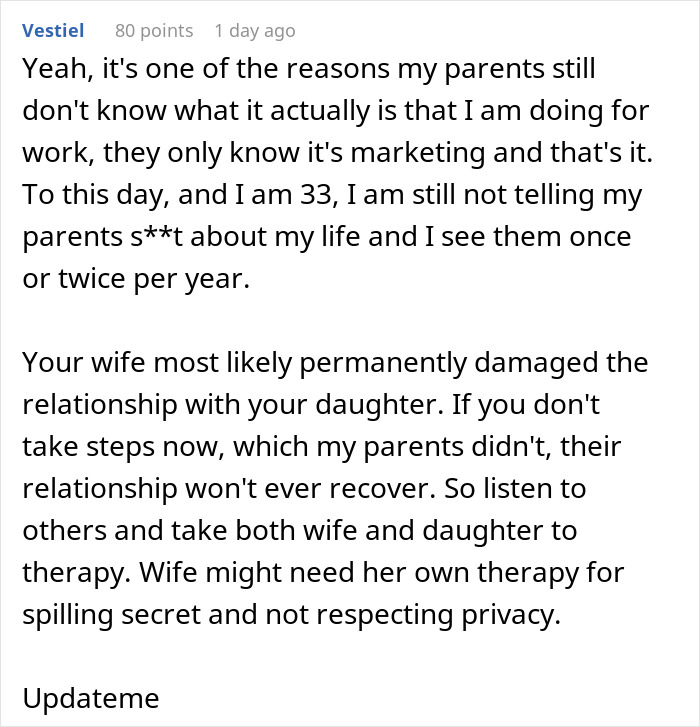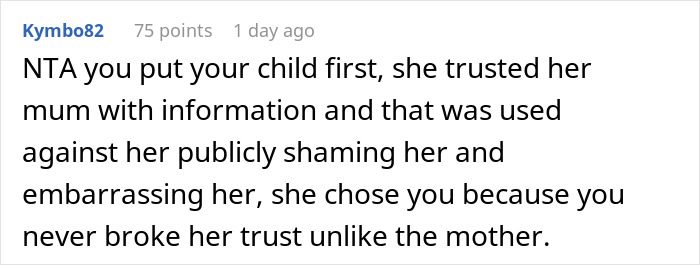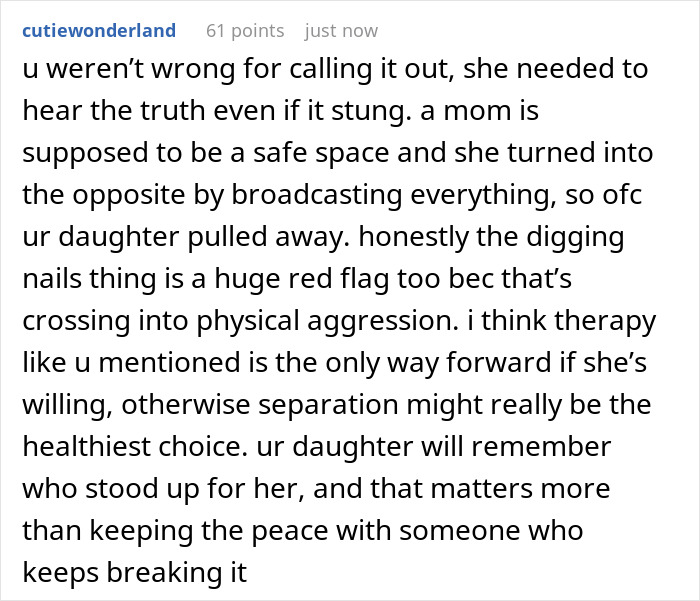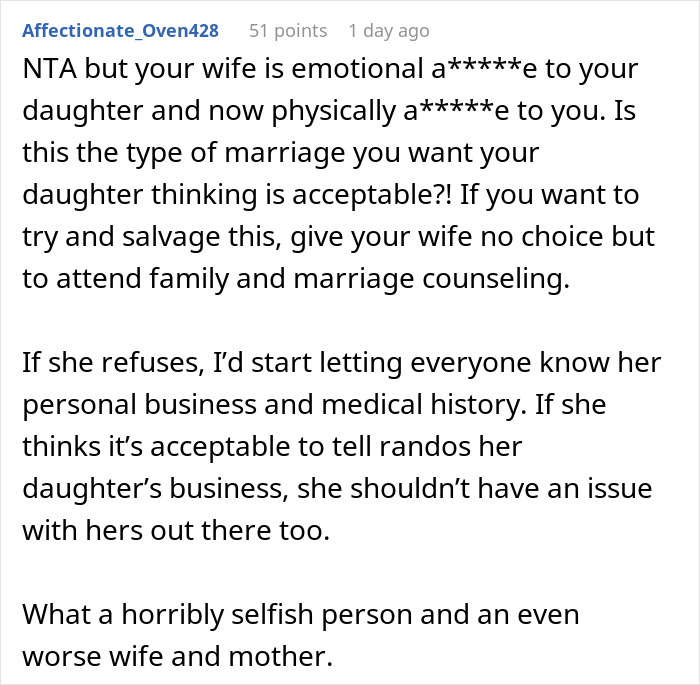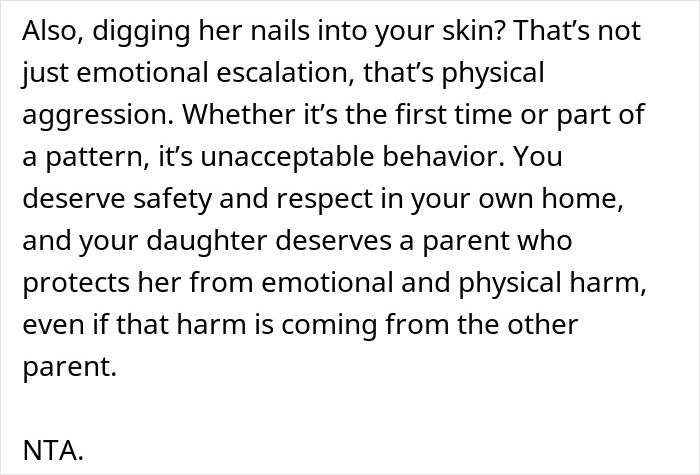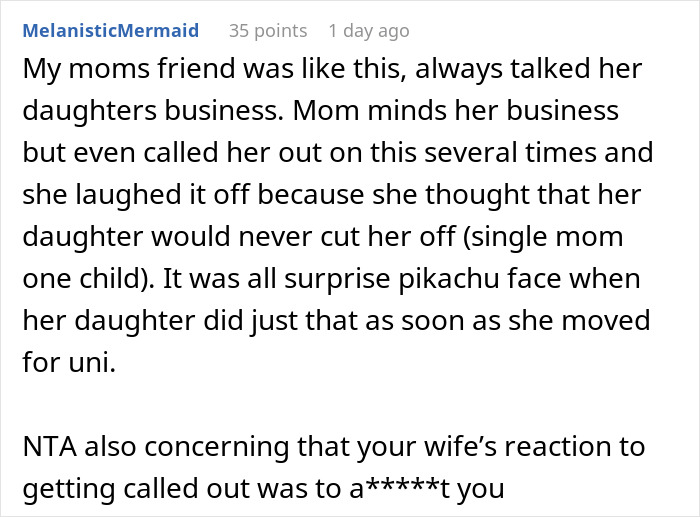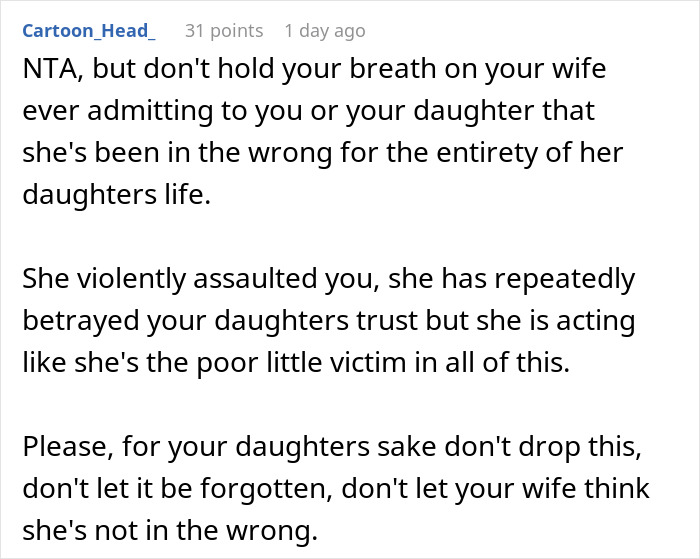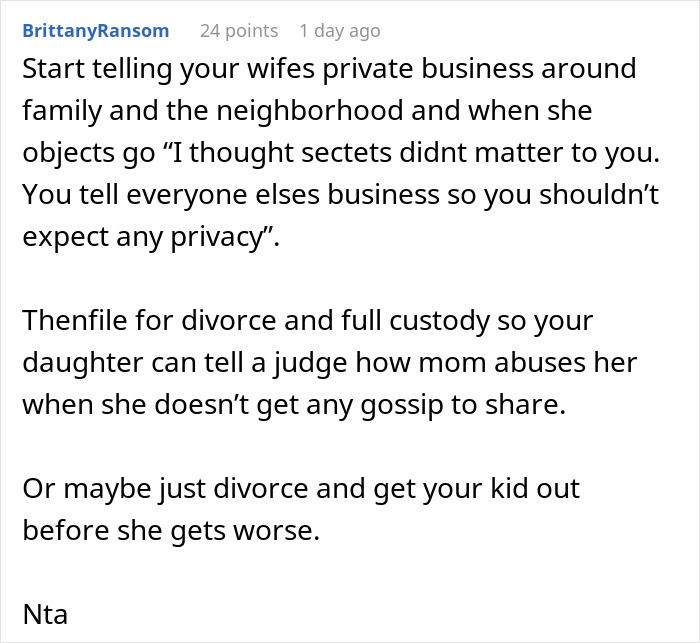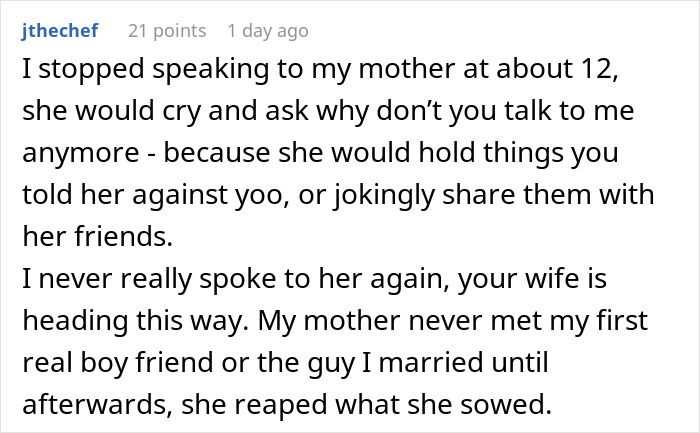Teens need a space where they can share their thoughts and feelings without fear of judgment or exposure.
And parents play a key role in creating that space at home, showing they can be trusted with personal opinions and deep, complex emotions. Reddit user Fun-Tomorrow1710 recently shared a story that highlights just how fragile these bonds can be. In the post, the dad describes ongoing tension in his family and blames his wife for repeatedly exposing their daughter’s private life to friends and relatives.
The gossip has ruined their household, and now everyone keeps their distance, with the daughter confiding only in her dad while her mother feels increasingly shut out.
Parents can help their teens navigate crushes and relationships, but only if they’ve earned their kid’s trust

Image credits: DC Studio / freepik (not the actual photo)
This dad is fed up with his wife constantly spilling their daughter’s secrets as if they were scenes from a sitcom
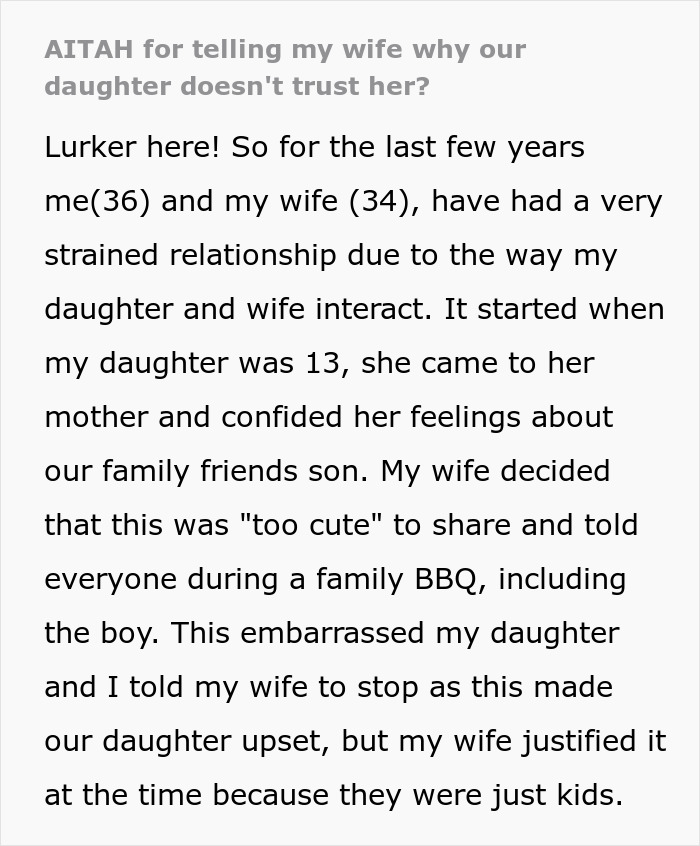
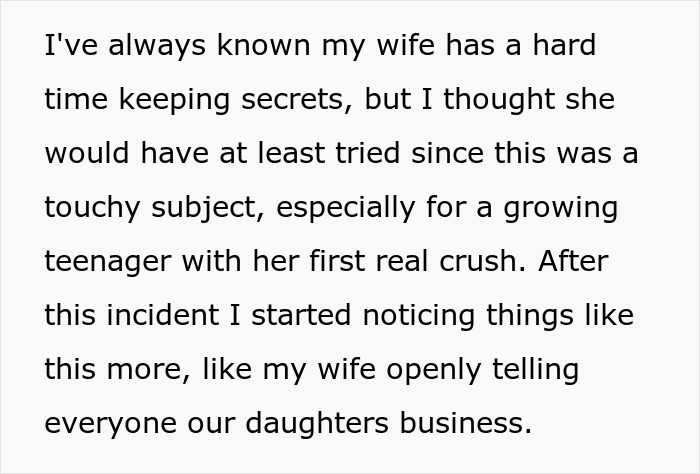
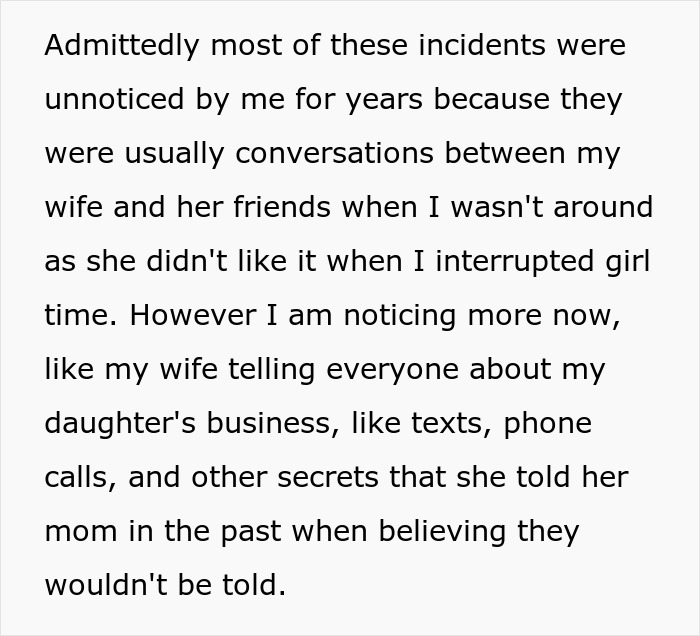
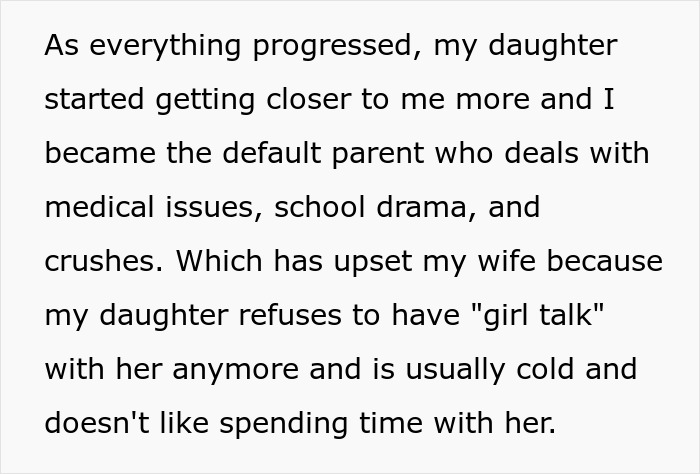

Image credits: freepik (not the actual photo)
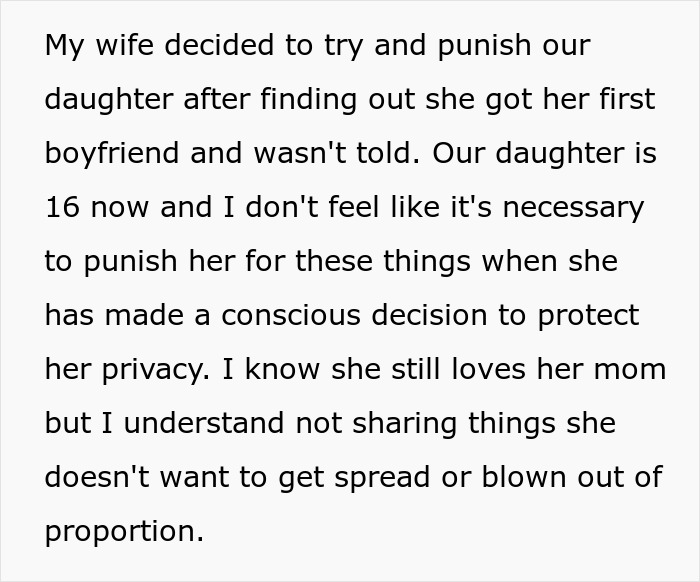
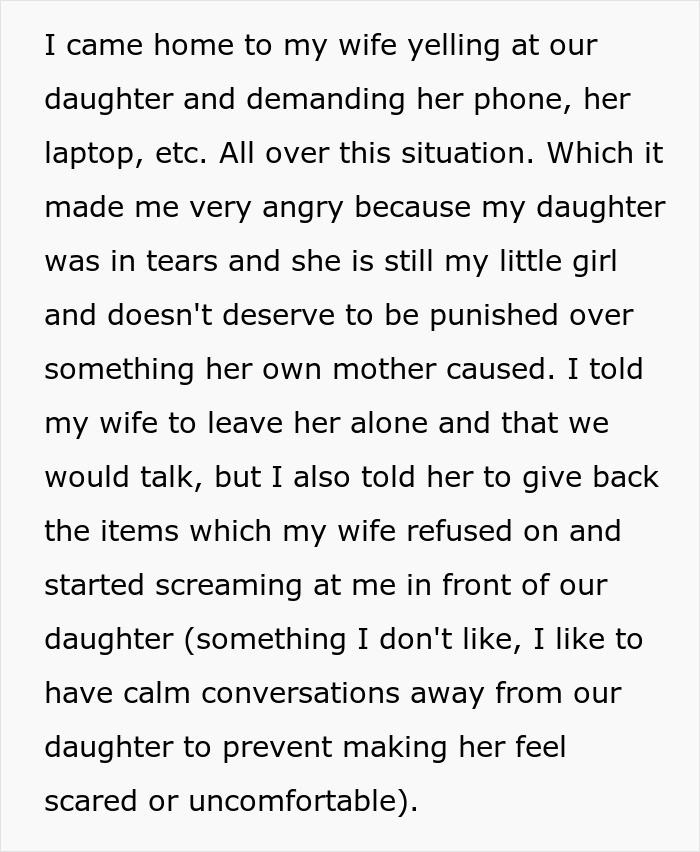

Image credits: vgstockstudio / freepik (not the actual photo)
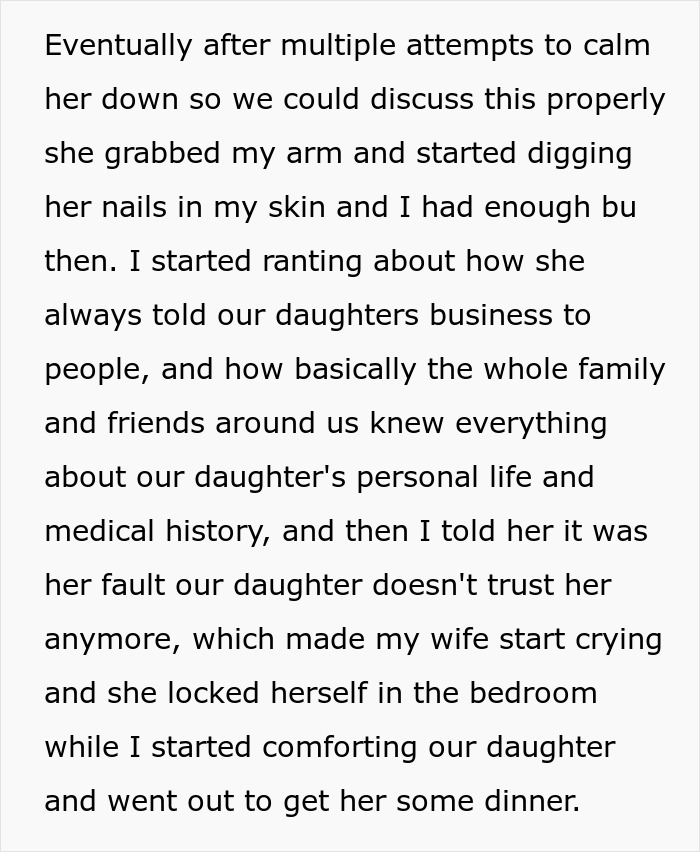
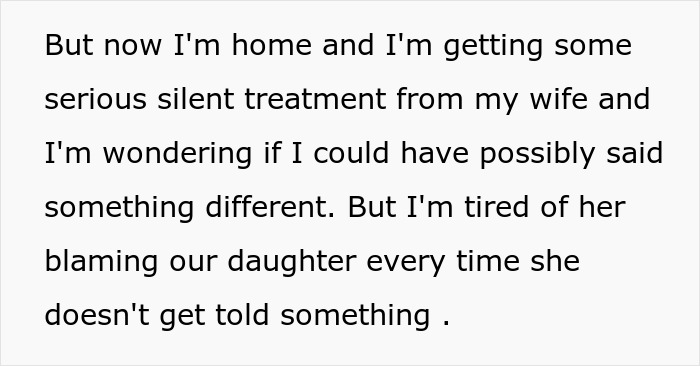

Image credits: freepik (not the actual photo)
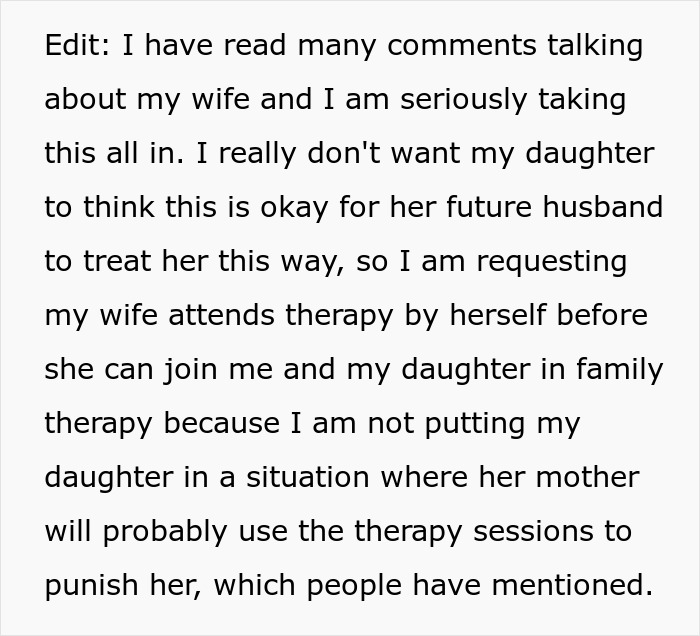
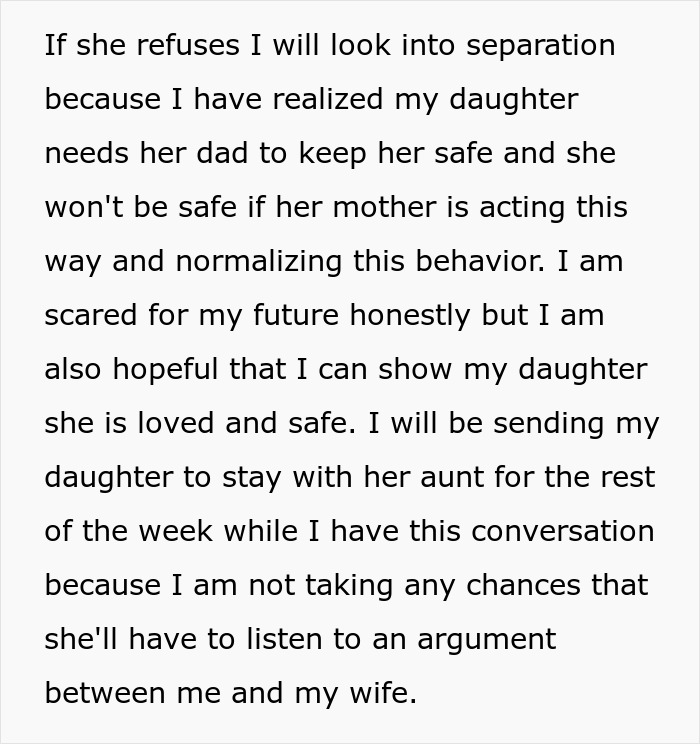
Image credits: Fun-Tomorrow1710
The way parents get along with their teens will affect their later lives as well

Image credits: prostooleh / Freepik (not the actual photo)
We don’t know everything about the mother, so we can give her the benefit of the doubt. Her oversharing might be due to a very human need—the desire to feel connected, supported, and seen.
Plus, while adolescence has always been complicated, a lot of changes—social media; an uncertain and increasingly unsafe-feeling world; radical shifts in gender, workplace, and family structure; and more—have happened since she was a teen, and the woman might not fully understand how her daughter’s environment is different from the one she had when she was her age.
But these nuances don’t diminish her agency. She is still a mother who needs to be the best version of herself for her daughter. “Having healthy relationships within the family is important for healthy … development, both in terms of maintaining secure attachment and modeling future intimate relationships,” psychiatrist Grant Hilary Brenner explained.
“In order for this to happen, adolescents have to feel safe enough, even when embarrassed or scared of punishment, to approach parents. Families in which parent-child relations are disrupted put adolescents at future risk for a variety of problems, including emotional abuse in adult relationships.”
A 2022 study employed latent class analysis to examine 332 adolescents’ strategies for managing information shared with their parents, focusing on disclosure, secrecy, and lying. The study identified three distinct patterns:
Communicators (36%): These teens frequently disclosed information to both parents, perceived high levels of parental involvement and autonomy support, and had autonomous reasons for disclosure.
Reserved (37%): This group disclosed information to mothers but less frequently to fathers, indicating a selective approach to sharing.
Deceptive (27%): The teenagers in this category often kept secrets and lied to both parents, reported low levels of parental involvement and autonomy support, and had less autonomous reasons for disclosure.
The researchers also discovered the deceptive class were more likely to engage in problematic alcohol use.
So by pushing her daughter away from honest conversations, the mom is jeopardizing more than their relationship.
People who read the dad’s post don’t blame him and think the mom needs to take full responsibility
